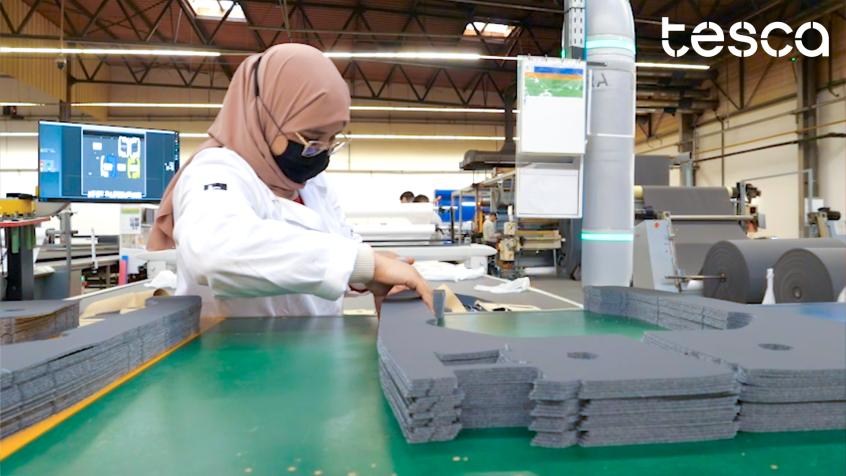A quick guide to product lifecycle management and how it can transform your supply chain
Product lifecycle management (PLM) is a blanket term covering the entire product lifecycle, including requirements, design, engineering, manufacturing, production, support, maintenance, disposal, and refabrication.

Product lifecycle management, from concept to marketing to sales
For creative teams of all types, it is important to understand the benefits of product lifecycle management beyond the supply chain. Good PLM software can organize and evaluate data from different sources related to consumer buying habits to inform sales and optimize business strategies in a given market. This is especially important for smaller producers who can’t afford to spend resources marketing to the wrong demographics.
PLM software is an invaluable tool for organizing product development, manufacturing, and support in a manner optimized for both the business’s and the consumer’s needs.
How PLM helps businesses expand their reach
Thanks to PLM, clothing businesses, for example, can more easily market to a variety of demographics because personalization becomes a lot easier. With a PLM tool, it’s much easier to track data and information of all the customization pieces in one place so your data is consistent and can be shared across your supply chain. This makes it realistic to offer more and more personalization options moving forward.
Evidence of personalization leading to business growth is undeniable, and there is no reason to expect the trend to turn. Amazon, for example, has reportedly seen as much as thirty-five percent growth due to increased product customization. Small shops now have to compete with big businesses, like Amazon, that offer rapid turnaround and personalization, as well as with new boutique outlets using software like Gerber’s AccuMark to offer even more customization features and keep up with competitors.
Fashion customization has found a way to work itself into global clothing and accessory brands, inspiring options for a broader range of body shapes and sizes. 3D CAD software can be used to generate custom previews on shopping websites where the consumer can ‘try on’ clothing in a simulated online environment. Proper sizing and fit reduces the need for returns and improves customer satisfaction by helping the customer choose the right product on their first try.
Made To Measure (MTM) software enables even small producers to offer fully customizable options with a cost efficiency that rivals their bigger, better-funded competitors. Through an integrated scanner, shape and fit customization options greatly increase. This enables a consumer to tailor a garment to their specific body type and preference, resulting in greater satisfaction and longer use of the product. A well-tailored garment tends to speak for itself, and a happy customer who wears a garment with frequency is essentially a walking advertisement for the designer and manufacturer.
Gerber’s PLM software is the economical and eco-conscious way to stay competitive
Waste is inherent in every stage of traditional production, not only in terms of environmental cost but also as far as time and resources. From partial test runs early in the conceptualization process to large-scale production of flawed garments and the eventual retirement of out-of-style pieces, production generates a lot of wasted product and material. By wrangling all your softwares, and communicating transparently, PLM software helps businesses work to reduce unnecessary waste of all kinds at every stage.
A good PLM solution can help a production shop avoid repetition and waste—both time and money—that a producer might not even know are problematic or avoidable. PLM software enables good PLM process from start to finish by organizing and analyzing data from all stages of the production process and enabling better troubleshooting and creating more opportunity to implement downstream solutions to upstream problems.
Advanced PLM integrated solutions lend substantial agility to the traditionally sluggish process of adjusting to market-wide trends in textile production. Software options like Gerber’s YuniquePLM enable shops to get patterns right before any physical samples are produced. Traditionally managed production operations simply cannot compete in markets that are growing increasingly reliant on the agility afforded by advanced, integrated manufacturing software systems.
Fortunately, the barrier to competition is far from insurmountable, even for smaller, narrower-margin businesses. The upfront investment in a new PLM system is offset from day one due to savings from waste reduction and pricing optimization. Longer term effects of competent PLM implementation, such as improved reputation from increased customer satisfaction and eco-responsible branding, invariably result in increased business and, thus, more revenue.
Vector by Lectra
Related content









